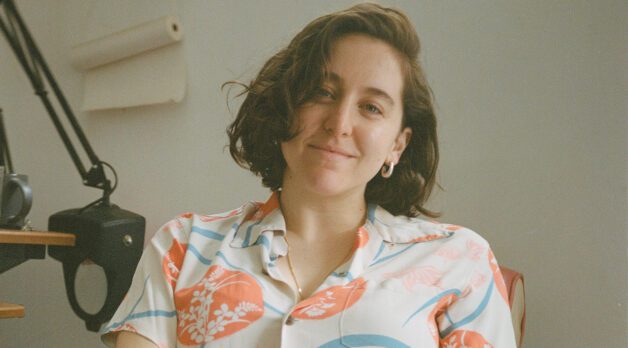Sarah Friedland
 Sarah Friedland
Sarah Friedland

Filmmaker and choreographer Sarah Friedland describes herself as “working at the intersection of moving images and moving bodies,” an apt encapsulation of an evolving artistic practice spanning experimental film, video installations and, now, features. Realized from 2017 to 2022, Friedland’s Movement Exercises Trilogy consists of three short films exploring the ways in which movement contextualized within specific settings encodes personal, social and political meanings. The first of the trilogy, Home Exercises, depicts older adults navigating the tasks and habits of daily living. Drills focuses on the choreographies of school and workplace preparedness exercises, referencing 1917 Boy Scouts drills as well as today’s active shooter rehearsals. And in the final work, Trust Exercises, Friedland examines how movement scenarios become a kind of game theory as they are used in so-called corporate team-building exercises.
Friedland, who majored in modern culture and media at Brown while studying dance on the side, says she “never had the urge or the talent to become a professional dancer or performer. But studying dance gave me this grammar to deconstruct the movement of the world around me and then to figure out, ‘OK, how do I break that down into images of movement?’” As she made experimental dance films, “more and more of those films took on different forms of scripting movement, and that led into the fictional threads in this feature film I’m making now.”
For Familiar Touch, currently in post-production, Friedland drew specific inspiration from her experiences with her grandmother as the older woman moved into a care facility. “I come from an intellectual family that places verbal acuity above other forms of knowing and relating,” Friedland says. “I noticed that as she became less and less verbal, we spoke about her as if she were less and less there. But as someone working with movement, she was still so present to me through other forms of sense-making, like touch and through the rhythm of the way she’d rock her body. It was another form of self-expression.”
These various ideas coalesced further as Friedland stopped working full-time in production—she had been an assistant to producer Mike S. Ryan and directors Kelly Reichardt and Steve McQueen, among others—and began a job as a care companion for New York artists with dementia. “That experience radically shaped how I thought about aging, cognition and self-identity,” she says. “I noticed in a lot of my clients how much they identified with me as a younger woman. I became fascinated by the slipperiness of age identity, and these experiences convinced me to make a coming-of-age film for an older woman who is experiencing the major transformations of moving into a care facility, experiencing a shift in memory and yet finding a continuity of self.”
Friedland set up a filmmaking workshop in Villa Gardens, a Pasadena continuing care retirement community, where the residents made films about their own lives before joining the feature as cast and crew. Because adults in the community’s memory care wing weren’t able to consent, and “it wouldn’t be ethical” to film them, Friedland worked with adults in the independent and assisted living wing, and key roles were played by professional actors such as lead Kathleen Chalfant.
In describing the feature, which she’s working on with producers Alexandra Byer and Matt Thurm, Friedland cites its various “braids,” which include the coming-of-age narrative as well as the kind of gesture studies familiar from the Movement Exercises Trilogy. But she also discusses the film’s inherent political themes. “Anti-capitalist politics haven’t adequately incorporated anti-ageism yet,” she says. “We don’t think enough about the devaluing of older adults the minute they are no longer valuable within the labor market and the impact that has on how we view care labor. I wanted to make a film that looked at an older woman not through decline or sickness or death, but just as a study of her experience of self outside work, outside our stereotypes of what an “old woman” is, and to look at her desires and shifting sense of self in an aging space, but where that space doesn’t define who she is.”—Scott Macaulay/Image: Aaron Rojas Vasquez
